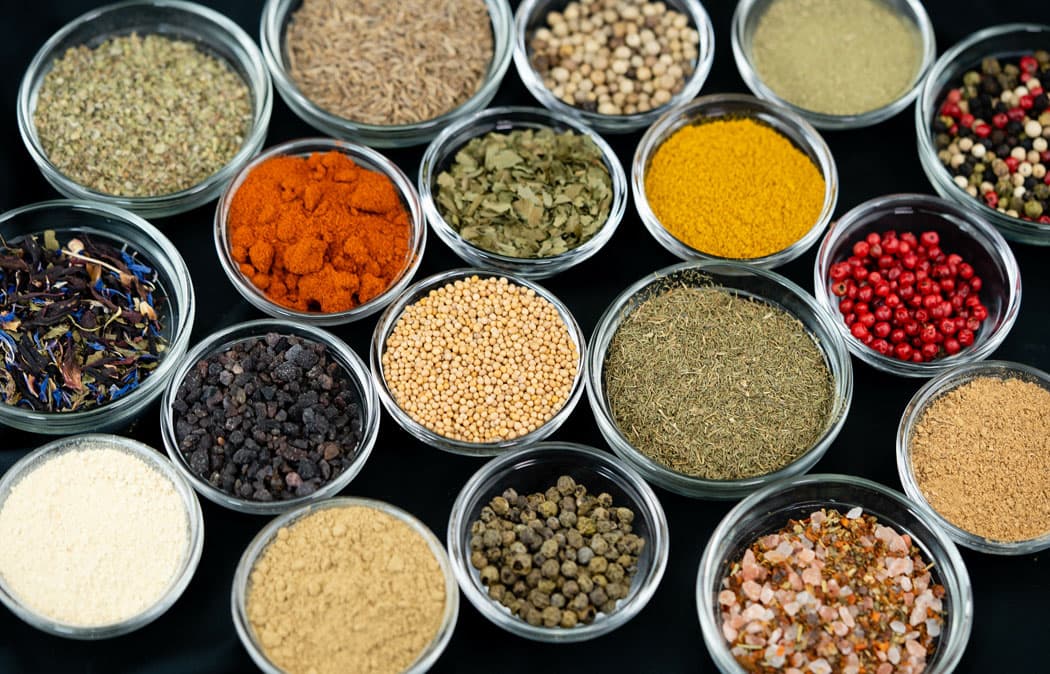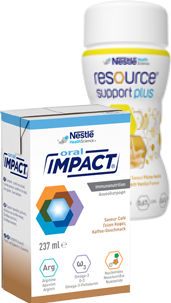Managing taste changes during cancer treatment: what can you do?
Managing taste changes during cancer treatment can be challenging for both patients and caregivers.

Managing taste changes during cancer treatment can be challenging for both patients and caregivers.
If you have cancer or are being treated for cancer, it may seem like food doesn’t taste the same as it used to. Eating the foods you once enjoyed may now leave a bad taste in your mouth — or even no taste at all.
This article explains why this happens and what to do for relief. Keep reading if you’re experiencing taste changes yourself or are caring for someone with cancer and wish to help them regain a sense of pleasure in eating.
Common taste changes during or after cancer treatment
Changes in food tastes or smells are common side effects of most cancer treatments. Usually, these side effects go away a couple of weeks or months after the treatment has ended1.
You may experience some of the following common taste changes during or shortly after your cancer treatment1, 2:
- Your food may taste bland or have no taste
- You may have a metallic or bitter taste in your mouth
- Foods or drinks that you normally enjoy (such as red meat, coffee, or tea) may taste too bitter
- Sweet foods that you normally enjoy may now taste too sweet
- Spicy food may taste too spicy — conversely, you may be less sensitive to spice
- Foods may simply not taste the same as they did before the treatment
- Food may feel dry in your mouth or taste like cardboard
- Food may be harder to smell, which also decreases its aroma and taste
- Food may smell too strongly or differently to before, and make you sick
These side effects vary from person to person2. Most changes will get better with time, but this does depends on the type of cancer treatment you’re having, as well as where the cancer is in your body2.
Cancer and taste changes: why does this happen?
Changes in food tastes and smells may be caused by cancer treatments or, in some cases, by cancer itself. Below are some common causes of taste changes2:
- Radiotherapy to the head or neck may affect your tastebuds and salivary glands. This may cause a dry mouth and affect how food tastes, feels, or smells.
- Chemotherapy damages healthy cells, including those in your tastebuds. Chemo can also affect nerve endings, which may affect how food feels.
- Surgery to the mouth or nose may affect parts of the tongue, nose or salivary glands. This can change the way you taste, smell or feel food.
- Other medications used in cancer care, such as antibiotics, may damage the cells inside your mouth and intestines. This may lead to mouth sores, affecting your response to food temperature, spicy, salty, or sour foods.
Having a dry mouth for an extended period of time due to chemo, radiotherapy, or surgery can also cause infections in your mouth, which can affect how food tastes2.
Is loss of taste a cancer symptom?
Taste changes or loss of taste may sometimes indicate cancer3,4,5.
According to some studies, about 15 to 100% of cancer patients experience changes in taste at some point3. In fact, according to some estimates, a change in taste is the fourth most common cancer symptom after dry mouth, weight loss, and feeling full quickly when eating3.
However, it’s important to remember that taste changes are more often a symptom of cancer treatment. Do not try to self-diagnose, and see a doctor if you’re worried about your symptoms.
What cancer causes loss of taste?
Certain cancers, like head and neck cancers, are more likely to cause changes in taste6. These include7:
- Mouth cancers
- Throat cancers
- Cancers affecting the larynx, or voice box
- Cancer of the nose and sinuses
However, other forms of cancer can cause taste changes too. For example, a recent study found that 17% of patients with advanced prostate cancer experience a change in how food tastes5.
Other research has found that even colon cancer may cause a bitter taste in the mouth8. Finally, taste changes and total loss of taste sometimes occur in lung cancer4.
Managing taste changes during cancer treatment
You can try the following tips to manage taste changes during your cancer treatment1, 3, 6. Some of these strategies may work for you, while others may not. Ultimately, you’ll need to explore different things and find the right “trick” that makes food taste better for you3.
Some ways for managing taste changes during cancer treatment include1, 3, 6:
- Add artificial flavorings to your meals
- Marinate meat and add more sauces to it to improve its taste
- Balance a salty taste with a sweet taste and vice-versa; try adding lemon juice if something tastes too sweet
- Opt for fish, poultry, or plant-based sources of protein (like tofu) instead of beef or any other red meat that doesn’t taste good to you
- Eat more boiled or bland foods to avoid being nauseated by intense tastes
- Keep foods and meals at room temperature before eating them, as this decreases their taste and smell, making them easier to tolerate
- Use an extractor fan when cooking or open the windows, buy precooked meals, or don’t eat foods that need cooking at all if the smell is too intense
- Try new recipes, condiments, and seasonings
We’ve also covered some of the most common taste changes and how you can manage them in more detail below.
What to do when food tastes bitter
To cope with bitter tastes, you can try the following:
- Add sweeteners, artificial flavors, or sauces to your meals. For example, you can try marinating the food in sweet juice, sweet red wine dressing, sweet-and-sour dressing, or Italian dressing4.
- Choose other foods that taste good to you, even if you’ve never tried them before1.
- Chew mint-flavored gum or suck on mints, ice, or frozen sweet fruit like oranges, cantaloupe, or watermelon6.
Adding nutritional supplements to your diet can help too. For example, some research suggests that taking zinc supplements may help improve the bitter taste in people undergoing cancer treatment1, 9. Speak to your healthcare team before taking any supplements.
Your care team may also be able to suggest some helpful medication. For example, they may be able to recommend some drugs that could help improve taste, such as marinol (delta-9-tetrahydrocannabinol (THC) and megestrol acetate1.
Nasty taste in your mouth? Here’s how to get rid of it
Often, cancer treatment can cause you to have a bad taste in your mouth. To get rid of it, try the following6:
- Keep good oral hygiene by brushing your teeth, flossing twice daily, and using mouthwash.
- Rinse your mouth before eating to help ease any bad tastes and help your food taste better. Mix 1 teaspoon of salt with 1 teaspoon of baking soda in 4 cups of water, rinse vigorously for at least 30 seconds and then spit.
You may want to speak to your dietitian or cancer care team about trying a nutritional supplement. For example, our Resource Refresh nutritional solution is specifically formulated for cancer patients who experience mouth sores or taste changes due to their treatment.
How to get rid of metallic taste in mouth from chemo
Having a metallic taste in the mouth is very common if you are having chemotherapy or radiotherapy2. When food tastes metallic from chemo, the following tips may help1, 3, 4:
- Replace your metal cutlery with plastic cutlery and use glasses and glass cups
- Add a sweet sauce or dressing to meats in order to counter the metallic taste
- Suck on hard candy or chewing gum, particularly with flavors of mint, lemon, or orange
- If red meat tastes metallic, don’t eat it. Try other protein sources instead, such as beans, tofu, or poultry
- Opt for fresh fruit and vegetables rather than products that come in a metallic can
This side effect will usually start to improve shortly after treatment ends.
Why taste changes matter if you have cancer
As you’re being treated for cancer, getting the nutrients you need to stay strong and healthy is important. But changes in taste may lead to a loss in appetite. In turn, this may cause malnutrition, nutritional deficiencies, or weight loss4. All of these can compromise your treatment and outlook4.
If you’re struggling to get all the nutrients you need from diet alone, speak to your dietitian about potentially incorporating a nutritional supplement into your diet.
As part of a balanced diet, our Resource range of nutritional solutions can help support you in your fight against cancer by:
- Helping you maintain a healthy weight
- Adding protein and calories to your diet when needed
- Preventing malnutrition
Managing taste changes during and after your cancer treatment can be challenging. However, overcoming this difficulty is important, as eating well keeps you healthy and strong in your fight against cancer.
By trying the tips highlighted above, you or the person you care for can hopefully regain a sense of pleasure from eating. If you’re still struggling to get the nutrients you need from diet alone, speak to your dietitian about adding a nutritional supplement such as Nestle’s Resource products.
References:
1 - American Society of Clinical Oncology (ASCO) Cancer.Net, Taste Changes. Accessed January 2023. Available at: https://www.cancer.net/coping-with-cancer/physical-emotional-and-social-effects-cancer/managing-physical-side-effects/taste-changes
2 - Cancer Council Australia, Understanding Taste and Smell Changes. Accessed January 2023. Available at: https://www.cancercouncil.com.au/wp-content/uploads/2015/09/Understanding-Taste-and-Smell-Changes-2021.pdf
3 - Murtaza, Babar et al. “Alteration in Taste Perception in Cancer: Causes and Strategies of Treatment.” Frontiers in physiology vol. 8 134. 8 Mar. 2017, doi:10.3389/fphys.2017.00134
4 - Spencer, Ana Sofia et al. “Managing Severe Dysgeusia and Dysosmia in Lung Cancer Patients: A Systematic Scoping Review.” Frontiers in oncology vol. 11 774081. 22 Nov. 2021, doi:10.3389/fonc.2021.774081
5 - Tulane News, Doctors should address reduced sense of taste and smell in cancer patients, Tulane study says. Accessed January 2023. Available at: https://news.tulane.edu/pr/doctors-should-address-reduced-sense-taste-and-smell-cancer-patients-tulane-study-says
6 - American Cancer Society (ACS), Taste and Smell Changes. Accessed January 2023. Available at: https://www.cancer.org/treatment/treatments-and-side-effects/physical-side-effects/eating-problems/taste-smell-changes.html
7 - National Health Service England (NHS), Head and neck cancer. Accessed January 2023. Available at: https://www.nhs.uk/conditions/head-and-neck-cancer/
8 - The University of Kansas Cancer Center, The Tie Between Taste Bud Receptors and Colorectal Cancer. Accessed January 2023. Available at: https://www.kucancercenter.org/research/transformative-research/beyond-the-bench/2021/the-tie-between-taste-bud-receptors-and-colorectal-cancer
9 - Najafizade, Nadia et al. “Preventive effects of zinc sulfate on taste alterations in patients under irradiation for head and neck cancers: A randomized placebo-controlled trial.” Journal of research in medical sciences : the official journal of Isfahan University of Medical Sciences vol. 18,2 (2013): 123-6.
Know more about the subject

How Social Support Networks Can Help People with Cancer
The stronger the social support network’s connection is, the more significant is its help.1

The Cancer Patient’s Caregiver May Need Help Too
There are several options of intervention that can bring positive results for both the caregiver and the patient. 2

How is the Nutritional Recovery of Cancer Patients Carried out?
Nutritional recovery aims to prevent and treat malnutrition, boost the immune system, speed up recovery after surgeries, reduce hospital length of stay and improve response to cancer treatment in general.1,2 Learn about the stages of nutritional recovery.

Psycho-Oncology’s Help on Patients’ Professional and Social Life
Therapeutic strategies allow facing the challenges of moving forward

How to Cope with Trouble Chewing and Swallowing




